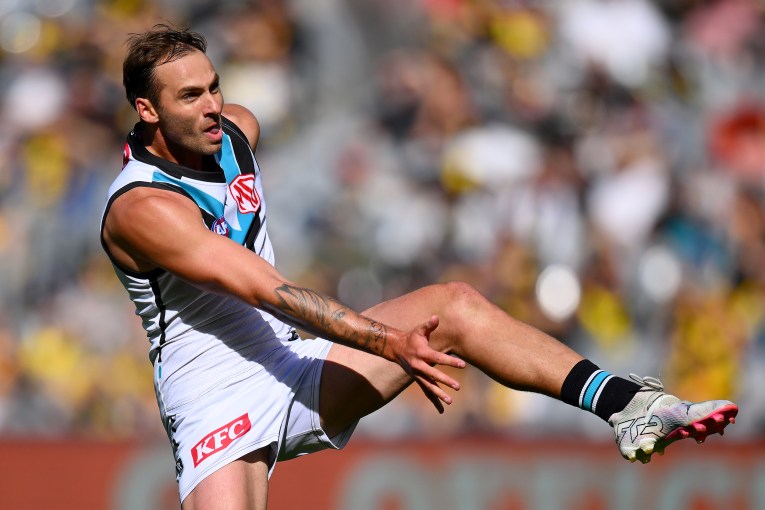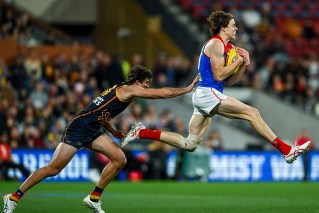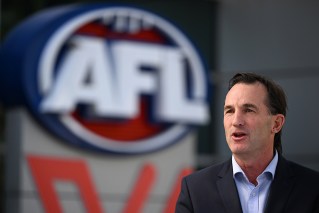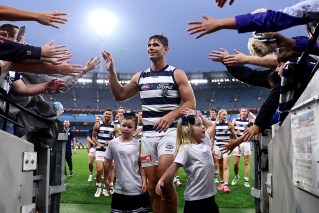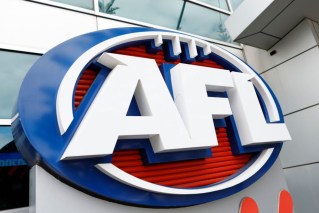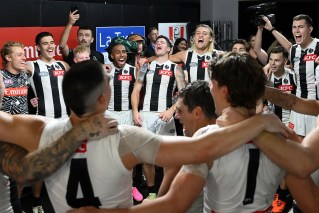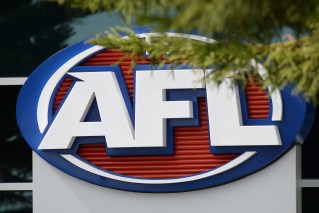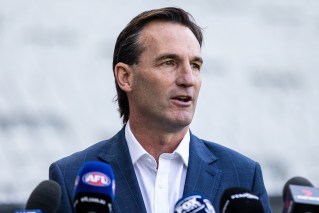AFL 2018: Peter Schwab picks the grand final winner
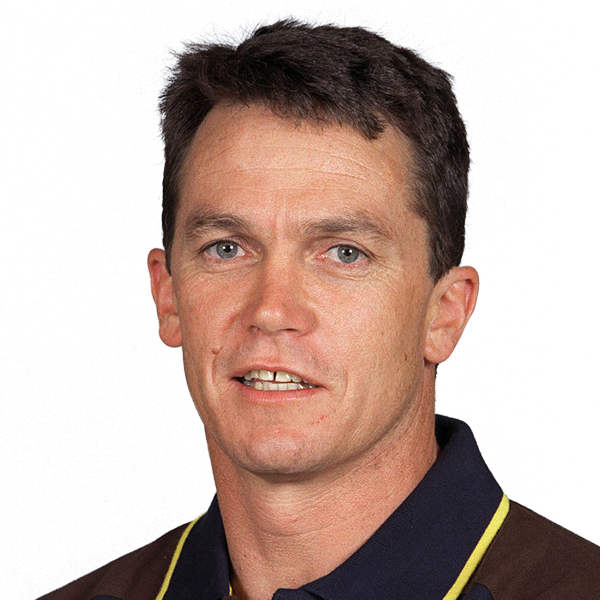
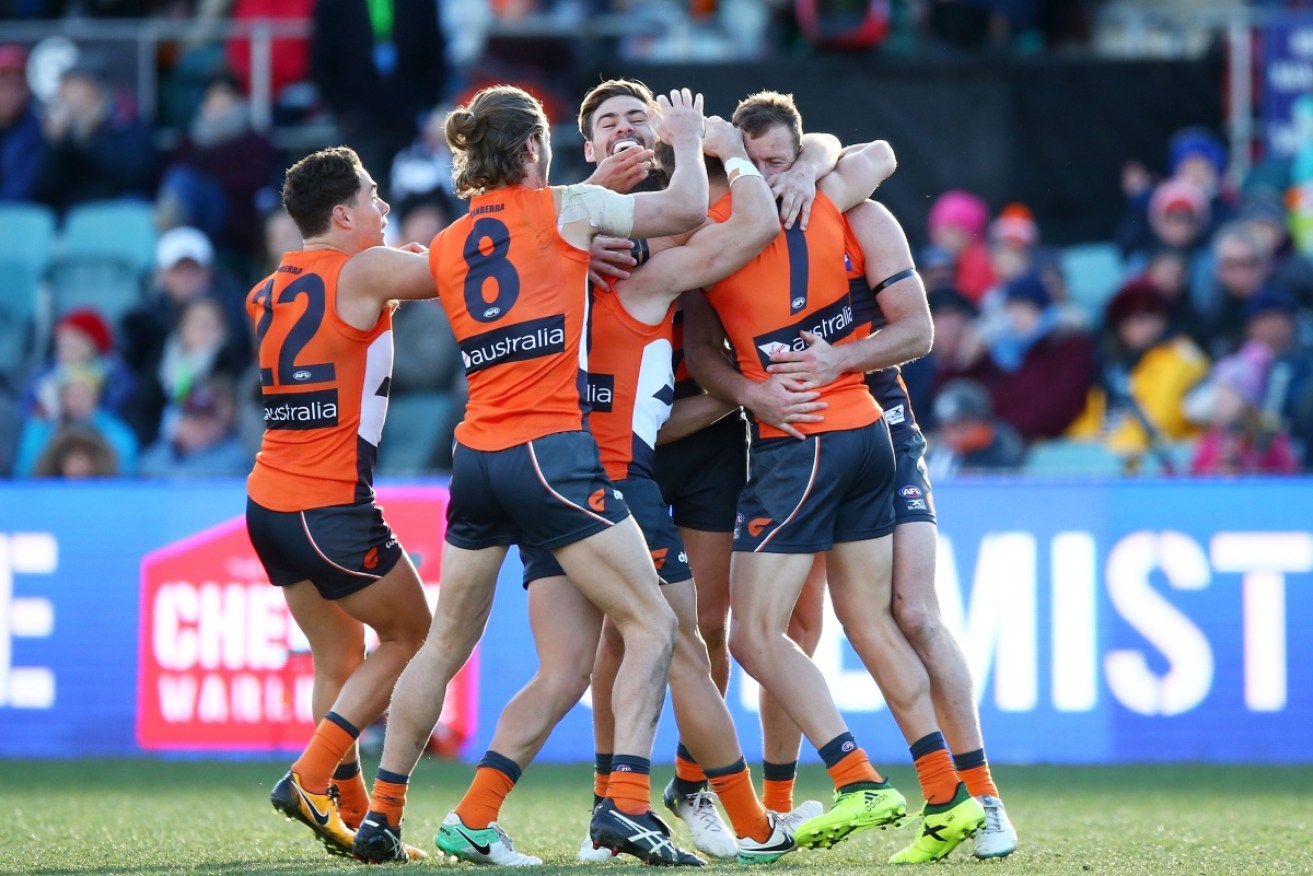
The Giants seem set for a big year. Photo: Getty
Ever since last year’s draft ended, every AFL club has been building hope.
Hope that this year is the year and that the new faces can provide that extra improvement necessary.
Hope, by definition, is a positive, but it also can be fragile if it is not grounded in realism.
And that is a challenge facing every club over the off-season.
I coached Hawthorn from 2000 to 2004 and in my last season in charge, I made a statement that created headlines.
Speaking at the 2004 season launch, I said that Hawthorn would win the premiership.
It wasn’t based on my or the playing group’s realistic belief. I said it to raise the proposition that playing in the AFL was all about trying to win the grand final.
The media took me literally and when the season unravelled, the club’s on-field failures and the absurdity of my statement were jumped upon.
By round 17, I was sacked as coach.
It wasn’t because of my statement, though. The club did not accept how far below expectations we had fallen.
Once the new season starts on Thursday night, the reality of expectation among all clubs will be revealed.
As always, the interest will lie with those who exceed and those who fall below expectations.
The dramatic improvement shown by the Western Bulldogs in 2016 and Richmond in 2017 to win a premiership was unusual.
But both clubs give every footy fan cause for hope, because they showed the ultimate success is not the minimum five-year build-up many think.
The pressure on coaches is now bigger than ever and there are many reasons a club might fall below expectations.

The Bulldogs surprised many in 2016. Photo: Getty
The success of a club’s recruits and the inequity in the AFL fixture, due to teams not playing each other twice, can naturally favour some and disadvantage others over the course of a season.
But only one factor can be seen as a legitimate reason: injuries.
If a club loses key players for lengthy periods of time, losses can start to build.
Conversely, keep your best team healthy and you build consistency, continuity and confidence. Often the self-belief and wins grow from there.
In 2017, there is no doubt that this benefitted Richmond, while Sydney’s heavy injury list significantly dented the club’s premiership chances in the early rounds.
So in 2018 who can convince us their expectations are genuine?
Richmond remains determined to keep its level of performance as an ongoing possibility and not just a historic spike of unexpected glory.
It seems likely that the Tigers can challenge again.
Adelaide, Greater Western Sydney and Sydney should share the other top four spots and appear to be the only premiership alternatives in 2018.
Melbourne is a fascinating proposition.
The minimum expectation at the Demons needs to be a finals spot based on the talent of their list and the potential the team appears to have.
But for them to rise into the eight, another must fall.
I tip that West Coast will fall heavily in 2018, to be replaced by the Demons.

Jack Viney’s fitness will be crucial to Melbourne’s success. Photo: Getty
I also see Geelong losing its finals spot to the Western Bulldogs, leaving Port Adelaide and Essendon as other finalists, but none of these teams can win the premiership.
Collingwood – with four consecutive seasons outside the finals – and Fremantle will both look likely as a top-eight team at some stage, along with Hawthorn and St Kilda, but I can’t see any of them featuring when it matters this year.
At the bottom end of the ladder, Brisbane, Gold Coast, Carlton and North Melbourne will all believe they can improve.
But it is hard to see any of them featuring outside the bottom four, despite some well-placed optimism of 2018 improvement.
At best, Carlton could rise slightly higher.
Peter Schwab’s 2018 ladder
1. Greater Western Sydney
2. Richmond
3. Sydney
4. Adelaide
5. Melbourne
6. Port Adelaide
7. Western Bulldogs
8. Essendon
9. Geelong
10. Hawthorn
11. Collingwood
12. Fremantle
13. West Coast Eagles
14. St Kilda
15. Carlton
16. Brisbane
17. Gold Coast
18. North Melbourne
Peter Schwab played 171 VFL/AFL matches for Hawthorn from 1980 to 1991, winning three premierships. He later served as Hawthorn coach, AFL National Umpiring director, AFL Match Review Panel chairman and Brisbane Lions list manager.
